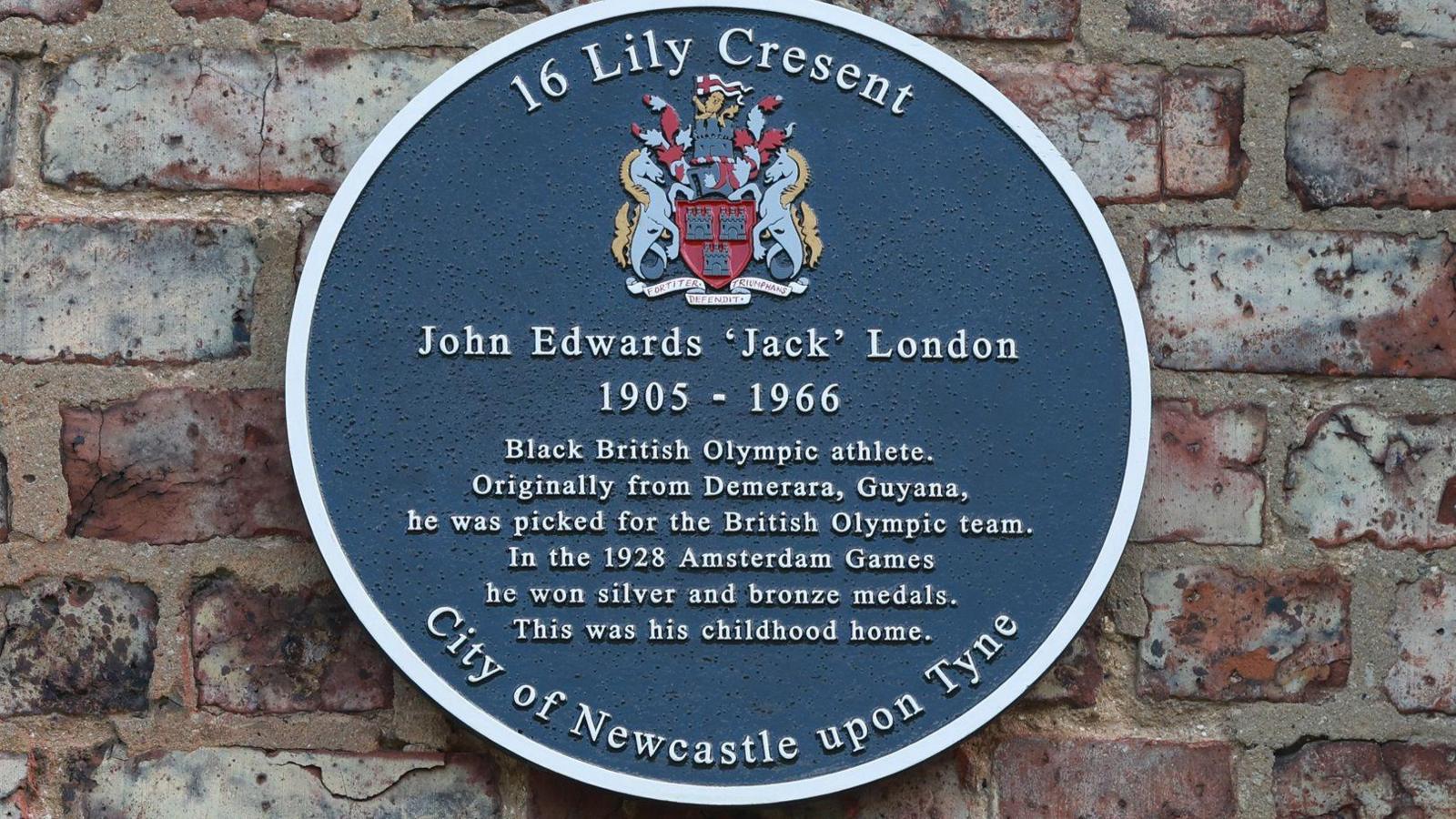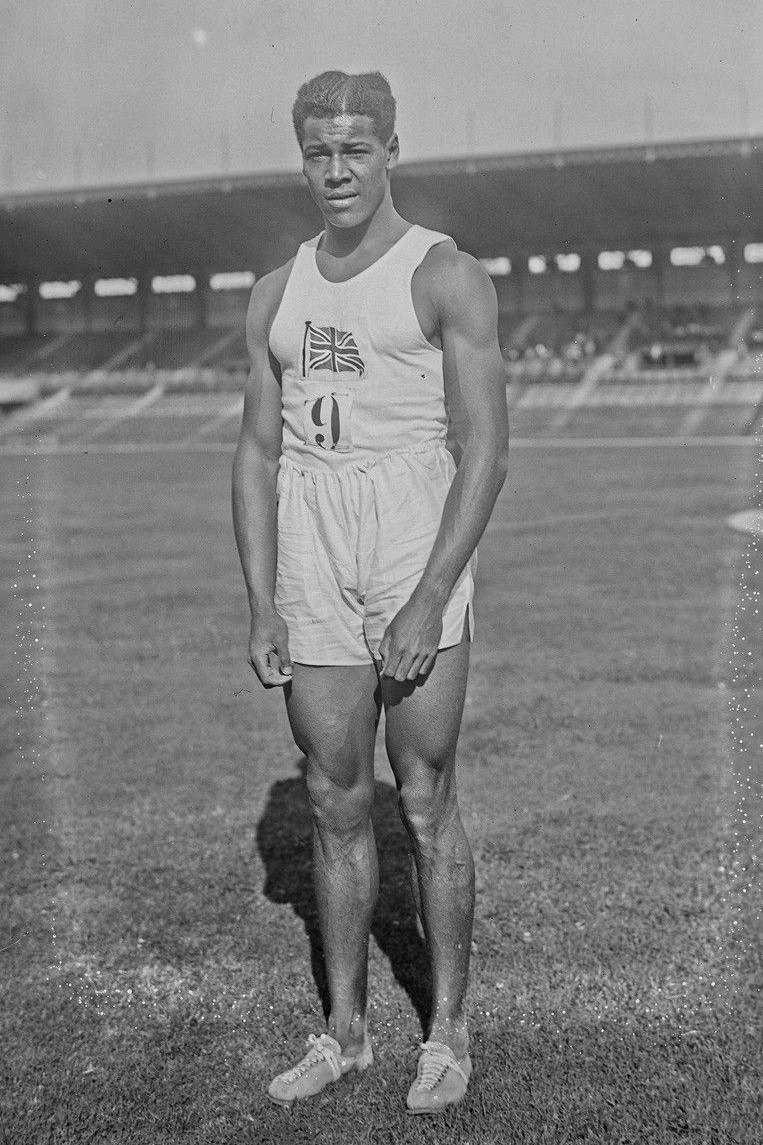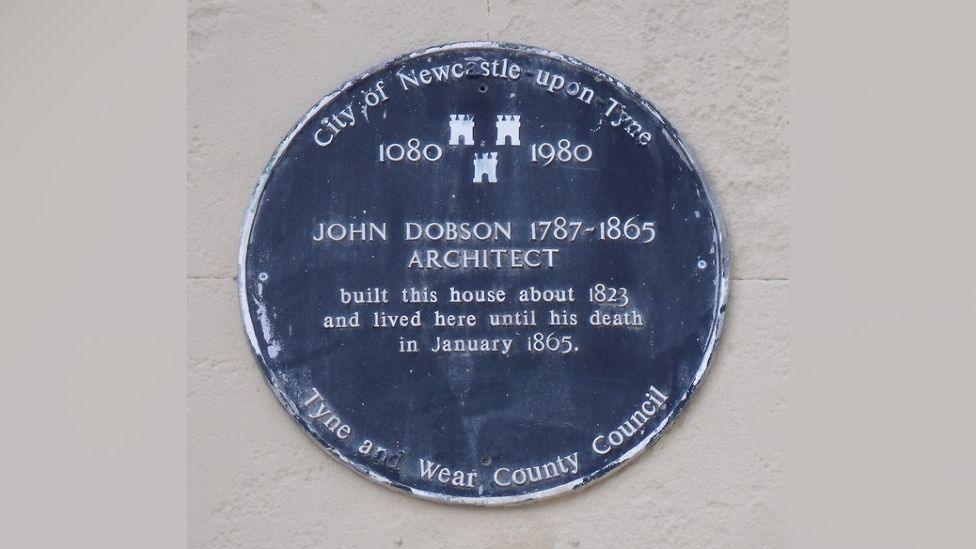'Trailblazer' athlete honoured with plaque

Jack London lived at his aunt's home in Jesmond as a youngster
- Published
An immigrant sprinter who became one of the first black Britons to win an Olympic medal has been honoured with a plaque.
John Edward London, known as Jack, was born in British Guyana in 1905 and earned a silver in the 100m at the Amsterdam games of 1928 and a bronze in the 4x100m relay.
He spent part of his childhood living at his aunt's home in Lily Crescent in the Jesmond area of Newcastle, where a plaque paying tribute to his achievements has been unveiled.
The deputy lord mayor of Newcastle, Henry Gallagher, described the runner as a "trailblazer in every sense of the word" and an example to "show us that we are stronger with immigration".
Mr London's family moved to London when he was a boy so that his father could study medicine.
Along with his mother, Beatrice, Mr London later spent time in Jesmond, although details about their time on Tyneside are still being researched.

Sprinter Jack London won silver and bronze medals at the 1928 Olympics
His athletics career saw him become an early adopter of starting blocks in sprint races - rather than digging foot holes into the cinder running tracks - and he was the first runner to use them at an Olympic Games, the Local Democracy Reporting Service said.
After retiring from athletics in 1931, he became an entertainer and played piano in the original cast of the Noel Coward musical Cavalcade.
He later worked as a hospital porter at London's St Pancras Hospital and died of a stroke in 1966, aged 61.
Mr London's achievements went largely unheralded until his great-niece put his medals up for auction in 2019, with the collection selling for £8,000.
The plaque was put up following a nomination from Historic England, supported by the North East of England African Community Association (Neeaca).
Neeaca member Beverley Prevatt Goldstein said Mr London "would have met racism on many fronts", but she added "he had friends, he had resilience, he stood his ground, he achieved and he contributed – not just in the Olympics, but in dance, in music, in portering".
Follow BBC North East on X (formerly Twitter), external, Facebook, external and Instagram, external. Send your story ideas to northeastandcumbria@bbc.co.uk.
- Published22 July 2024
